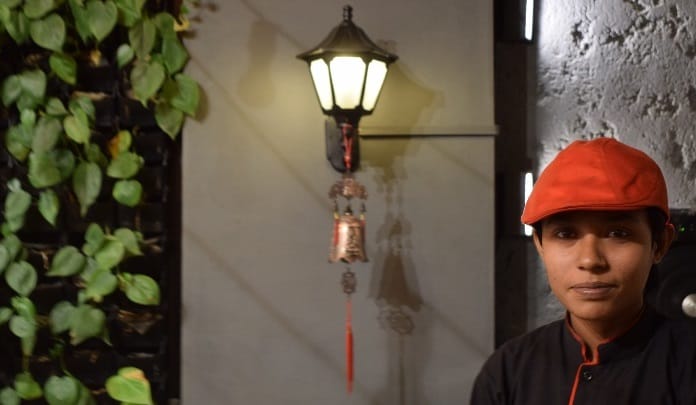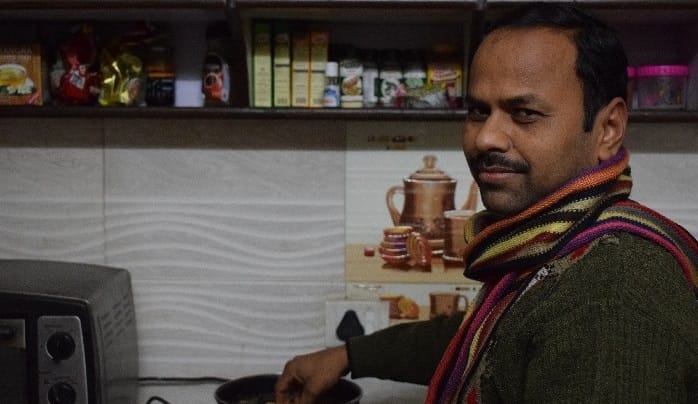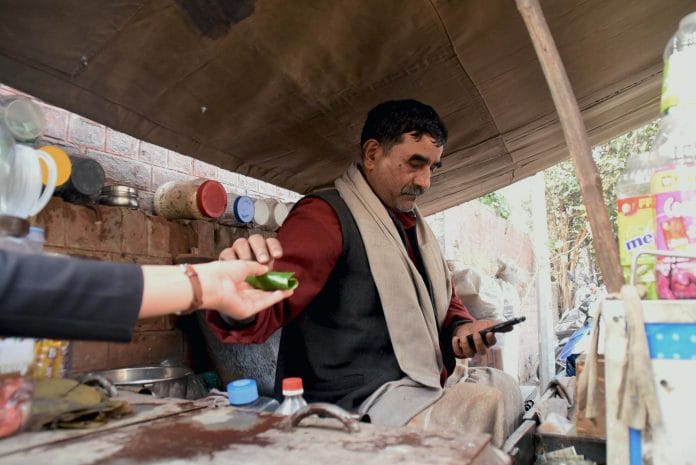Budget smartphones and tailor-made apps that cater to non-English speaking users is changing the way information is being accessed.
Folding a paan with one hand, Balbir Chaurasia pulls out his phone with the other and speaks into it: “Mohammed Shafi Faqir.” On YouTube, a number of results pop up.
He clicks on one of the videos, and explains, “Faqir is a Pakistani singer who has done some beautiful renditions of Kabir’s poems. Your generation would do well to listen to him.”
Chaurasia says that being gifted a smartphone by his daughter has allowed him to access a wealth of music without having to store or maintain it. Chaurasia, who is in his sixties and has run a paan shop at ITO in Delhi for decades, owns a Lenovo K6 phone which costs Rs 10,000.
“I only use voice recognition. It’s more accessible to me since I can’t write in English,” he says.
In India, nearly 80 per cent internet users use mobile phones, most of which are smartphones loaded with Google’s Android operating system. Android’s latest version Oreo acknowledges this with apps tailored to such phones like the voice recognition-based Google Assistant, keypads for 22 Indian languages, and a two-wheeler mode for Google Maps. Social media giant Facebook is also available in 11 Indian languages and has a version tailored for users with access to slower internet connections.
But how do users of budget smartphones really utilise these phones and its latest features?
Trisha, 29, server at restaurant, Hudson Lane
Phone: Micromax Spark
Price: Rs. 4,300
“I only use my phone to video call my family on Whatsapp”
Originally a resident of Calcutta, Trisha has been living in Delhi for the last three years. She says she uses her phone to keep in touch with her family.
“After coming here I only use my phone to video call my family on Whatsapp. Earlier, in Calcutta, I used it to keep in touch with people and make new friends on Facebook. Now my circle of friends has reduced, so it’s mostly my family I talk to,” she says.
Trisha, who preferred to be identified only by her first name, often uses the restaurant’s wi-fi, and rarely spends on internet connectivity for her phone. Her life on social media is more colourful than her real one, she says.
Rajbala Devi, 54, Security Guard
Phone: Karbon K9
Price: 2, 890
“Whenever I have doubt about anything under the sun, I just Google it.”
Google is the key to all knowledge for Rajbala Devi, who works as a security guard at Kirori Mal College.
“I’ve learnt a lot from it. Aside from daily news, which I read in Hindi, Google always has answers. I had gone shopping once for elaichi, except that the store had everything written in English. I asked Google-baba what the English word for elaichi was. Pardon my pronunciation, it doesn’t roll off of my tongue so easy, but it is caar-damum,” she proudly says.
She says she uses YouTube to constantly listen to old Hindi songs, and uses the search feature on her phone by typing Hindi words in the Roman script.
Nand Lal, 40, Freelance Cook in Kamla Nagar

Phone: Samsung Duos
Price: Rs. 8,000
“My children love playing games on my phone; I use that to make them study.”
Nand Lal says his phone is a means to get his two children, a 10-year-old son and 13-year-old daughter, to study.
“They love playing games on it. It’s a simple barter system; if they study for 2 hours, they can play for half an hour on the phone. They also watch cartoons on it,” he says.
When he’s not using his phone to get his children to study, YouTube is his favourite app. He says he uses the app to watch movies regularly, with or without his family. He is also active on Facebook, which he uses only in Hindi.
Google maps often come to his rescue when travelling, he says.
“Delhi is a large city and it’s difficult to remember all routes. I often use Google Maps when I need guidance. You can just tell the app where you want to go, and it will take you,” he says.
Vinod Chobe, mid-40s, Shoe Polisher, Connaught Place
Phone: Nokia 105
Price: Rs. 1,100
“What use is internet to the likes of us?”
For Chobe, who polishes shoes outside Rajiv Chowk metro station, his phone is only a means of communication. He uses it to call his family, who live in a village in Uttar Pradesh, in order to stay updated about their lives.
Chobe says his daily routine keeps him busy, and he calls his family once every day.
“What use is Internet to the likes of us? The phone lets me talk to my four-year-old daughter and that is enough for me. Even if I buy a fancy phone, who will teach me to use it?” he says.






